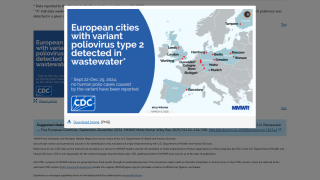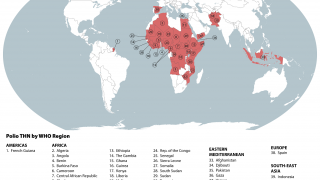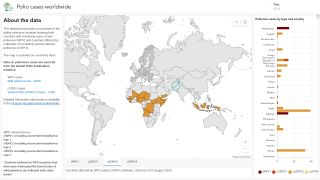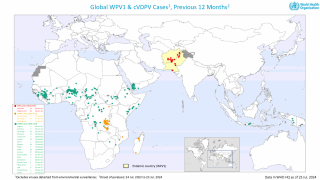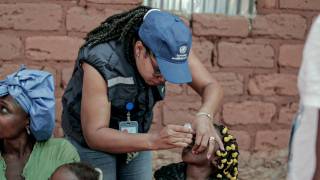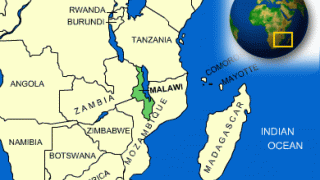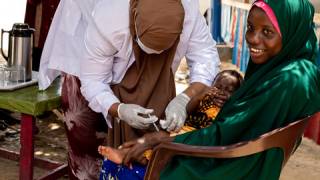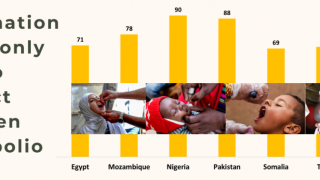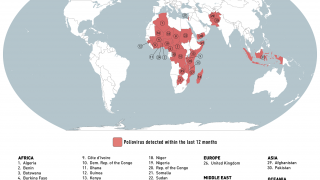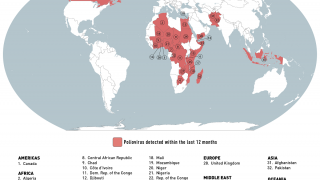Polio Case Confirmed in Malaysia

According to local media reporting, the Malaysian Health Ministry has confirmed the 1st local polio case in a local child under 1 year of age.
"The Health Ministry regrets to inform there has been a confirmed case of poliovirus infection in Malaysia,” said director-secretary Dr. Noor Hisham Abdullah, on December 8, 2019.
Dr. Noor Hisham confirmed that the toddler was suffering from circulating vaccine-derived poliovirus type 1 (cVDPV 1).
He said cVDPV 1 originates from a weakened poliovirus used in vaccines administered orally. And the weakened virus can still appear in the feces of those who consume the vaccine but those who have been vaccinated are immune.
Dr. Noor Hisham said an investigation showed that 23 out of 199 children aged 2-months to 15-years-old in the area where the case was discovered, or 11.6 percent, had not been vaccinated.
"This is a concerning situation as the spread of cVPDV can only be stopped through polio immunization.”
“As a result of a validation test conducted by the World Health Organisation Polio Regional Laboratory in Australia, the virus is linked to the poliovirus detected in the Acute Flaccid Paralysis case in the Philippines,” Dr. Noor Hisham said. This is the first polio case in about 27 years.
As of December 8th, there are have not been any travel alerts issued for Malaysia regarding polio.
During January 2018–June 2019, cVDPV type 1 (cVDPV1) circulation was detected in Indonesia, Myanmar, and Papua New Guinea.
The World Health Organization (WHO) did announce some good news in October 2019 when another strain of polio, WPV3, was deemed eradicated, leaving just one strain left to eliminate, the WPV1.
Poliomyelitis is a crippling infectious disease caused by a virus that spreads from person to person, invading the brain and spinal cord, which can lead to paralysis, says the US Centers for Disease Control and Prevention (CDC).
If a population is seriously under-immunized, vaccine-derived poliovirus can begin to circulate in a community.
One suggestion to stop polio outbreaks would be to discontinue administering the live oral vaccine and switch to the not-live, injectable vaccine, currently used in the USA.
The inactivated polio vaccine (IPV) is the only polio vaccine that has been given in the USA since 2000. IPV is given by a shot in the leg or arm, at 4 different times, depending on the patient’s age.
The CDC recommends that all travelers to polio-affected areas be fully vaccinated against polio with an IPV. Even if you were vaccinated as a child or have been sick with polio before, you may need a polio vaccine booster dose to make sure you are protected, says the CDC.
In the USA, there are various polio vaccines available, such as Kinrix and Pediarix. IPV vaccination has not been known to cause serious problems, but side effects are a potential risk, says the CDC.
Once vaccinated, your doctor should provide you with an International Certificate of Vaccination or Prophylaxis yellow card. This will serve as your official documentation of vaccination against polio.
In addition to polio warnings, the CDC has issued Measles Travel Alerts for Malaysia in 2019.
Prior to traveling abroad, vaccine counseling appointments can be scheduled with a travel specialist at Vax-Before-Travel.
Polio vaccine news published by Vax-Before-Travel.
Our Trust Standards: Medical Advisory Committee


